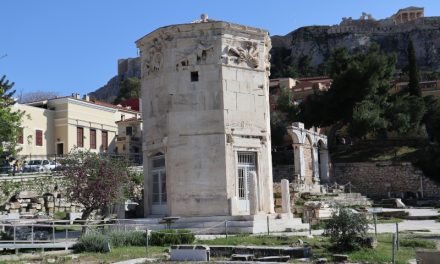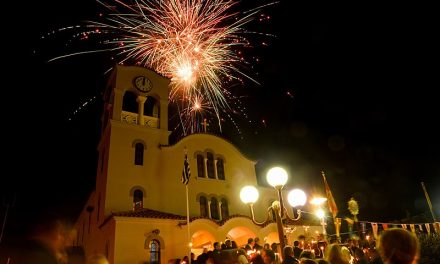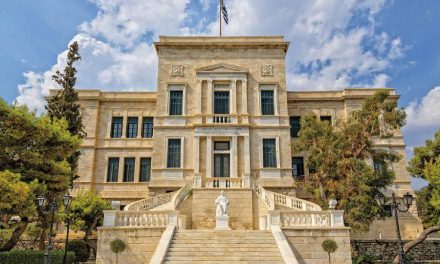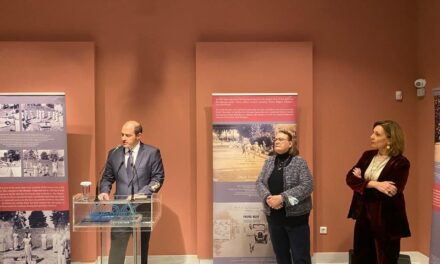Anthony Georgieff is a journalist, photographer and writer with 30 years of experience in covering Bulgaria, Denmark, Germany, the UK and the United States. He has been publishing magazines and books in Sofia since 2004, including Bulgaria Air (the inflight magazine for the Bulgaria Air company), Highflights (Bulgaria’s airport magazine), Vagabond (Bulgaria’s English magazine) and Go Greece! (Bulgaria’s magazine about travel, culture and entertainment in Greece). Anthony Georgieff spoke to the Press and Communication Office* of the Embassy of Greece in Bulgaria on his experience as the editor of Vagabond, a prestigious English-language monthly published in Bulgaria, and on Greece and Greek-Bulgarian relations.
As the editor of Vagabond, a prestigious English-language monthly published in Bulgaria, which addresses mostly the expat community in the country, your approach is more, internationalist in the sense that you do not only promote Bulgarian themes. In fact, there have been several articles on Greece/Greek-related themes. Why is that? What is the philosophy behind the publication?
We started Vagabond, Bulgaria’s English Magazine, about 12 years ago mainly as an English language media to inform the expats in this country as well as the diplomatic corps and their families. With time, both our audiences and the topics we cover have changed. The magazine is still going strong, but now we try to offer some insights into other nearby nations and cultures on the presumption that expats who live in Bulgaria would sooner or later try to travel in the wider region as well. Greece is obviously a very natural choice.
Greece and Bulgaria -two neighbouring countries. Which are the similarities and the differences between the two countries and peoples?
I am sure if I had the time I would be able to write a couple of books about this, but let me try to be brief. Greece is, and has always been, a maritime nation with a very well developed sea culture. Bulgaria is not. The Greeks have been seafarers; the Bulgarians have been farmers. You can well see this in the cuisine. Second, both Greece and Bulgaria have been subjected to Ottoman domination for centuries. The Greeks, in contrast to the Bulgarians, seem to have outlived the acrimony and now focus on the potential and the prospects.
Third, both the Greeks and the Bulgarians (and for that matter the Germans, and the Swiss, and the Americans and everyone else) have been imbued with many stereotypes. The Greeks are lazy, the Bulgarians are thieves. Stereotypes are never correct. There may be some Greeks who do not like too much work, but then there are many others who do overtime every day and night, especially during the tourist season.
Fourth and last, the Greeks have a very well developed sense of communality. Even in the small villages people unite in various professional, social and political organisations. The Bulgarians are mostly individualists. If the Greeks feel threatened by anyone, including their own government, they instantly take to the streets. The Bulgarians would usually go home, switch on the TV and start cursing at it.
However, most importantly, Bulgaria and Greece have been neighbours for a very long time – and will continue to be neighbours for a very long time to come. This is what matters. We have some common traits and we have some differences, and we must get on with both. I think the EU offers plenty of opportunities to do just that.
Bulgarian media often describe Greeks as “Byzantines”. To what extent is the Byzantine culture our common legacy?
If by Byzantine culture you mean cloak-and-dagger operations, hypocrisy and conservatism, then Greece and Bulgaria surely belong to one another. But Byzantium was not only about that. Byzantium developed one of the most extensive civilisations after Rome and we can still see its influences in terms of archaeology, food, language, culture and so on. Let us not forget that the Bulgarian alphabet, which every Bulgarian is so proud of, was conceived in what at the time was Byzantium.
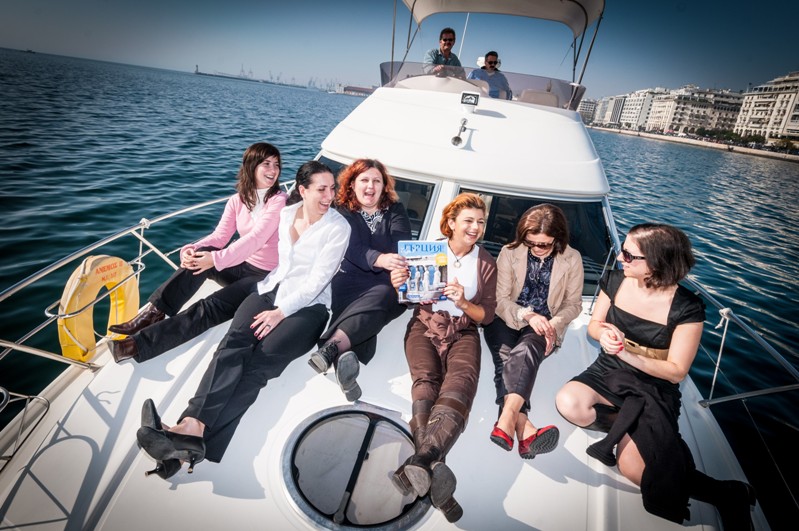
As a photographer you have covered many places, among which was Greece – and several times. Which places would you recommend as “must visit” in Greece?
I cannot answer this question. To say that one must visit Athens would do injustice to Thessaloniki, and to promote Santorini instead of Paros would be to forget about Crete and Corfu. To say that Greece only has a sea would be a gross violation of the beauty of Epirus. Greece has so many things in it that you need several lifetimes to see and experience them all.
You used to publish a Bulgarian-language magazine “GoGreece” promoting Greek tourist destinations that was discontinued. How could one refresh the interest of the Bulgarian public for Greece and in what format?
Unfortunately, we had to stop the Go Greece! magazine owing to the economic crisis. Now the economic crisis is officially over, but the world is not the same. With the Internet and the many reliable and not-so-reliable Internet sites promoting tourism, shopping, entertainment and everything else a print magazine looks like an oddity. However, a print magazine has some advantages over the Internet. You can’t really enjoy a good photograph on your iPhone, can you? Luckily, some advertisers seem to understand that.
And a final question: is there any aspect of Greece – whether place or cultural element, food/wine – you haven’t covered yet and you would like to and why?
Personally, I haven’t been to the islands in the eastern Aegean and I am looking forward to visiting before too long.
*Maria Tyropoli, Evgenia Kambaki, Press and Communication Office of the Embassy of Greece in Bulgaria.
I.L.
TAGS: INTERNATIONAL RELATIONS

